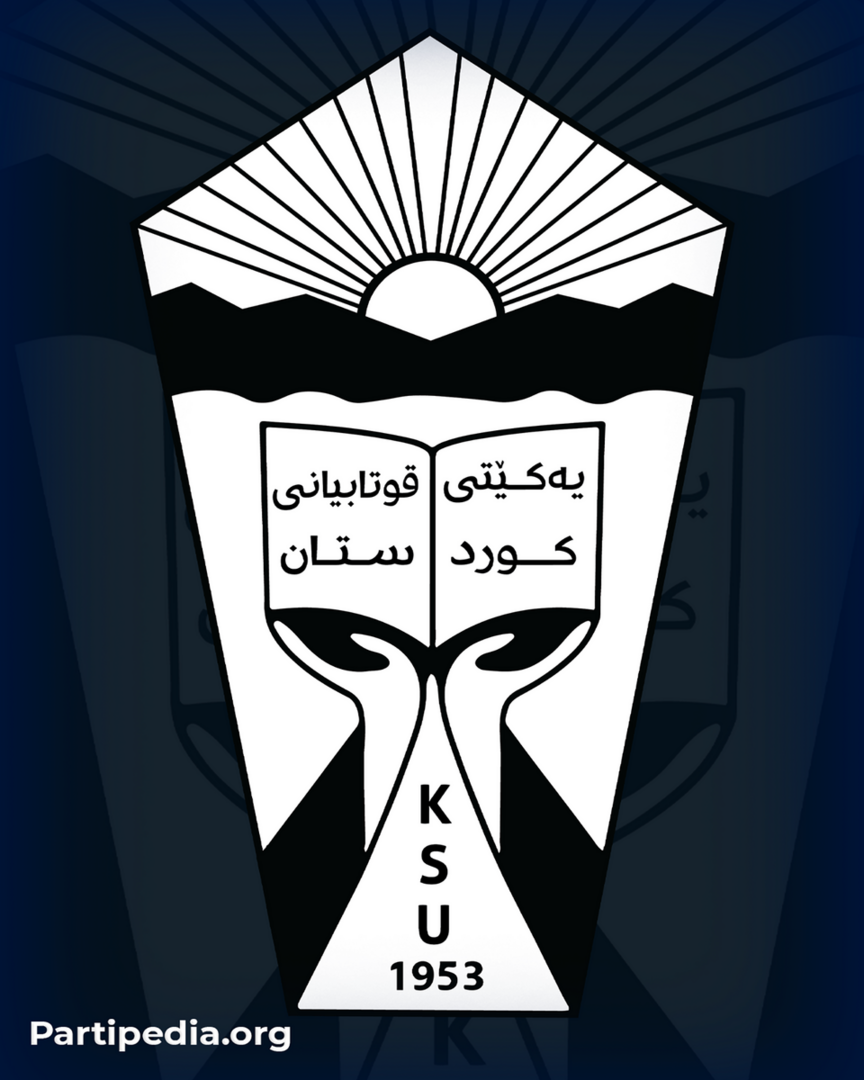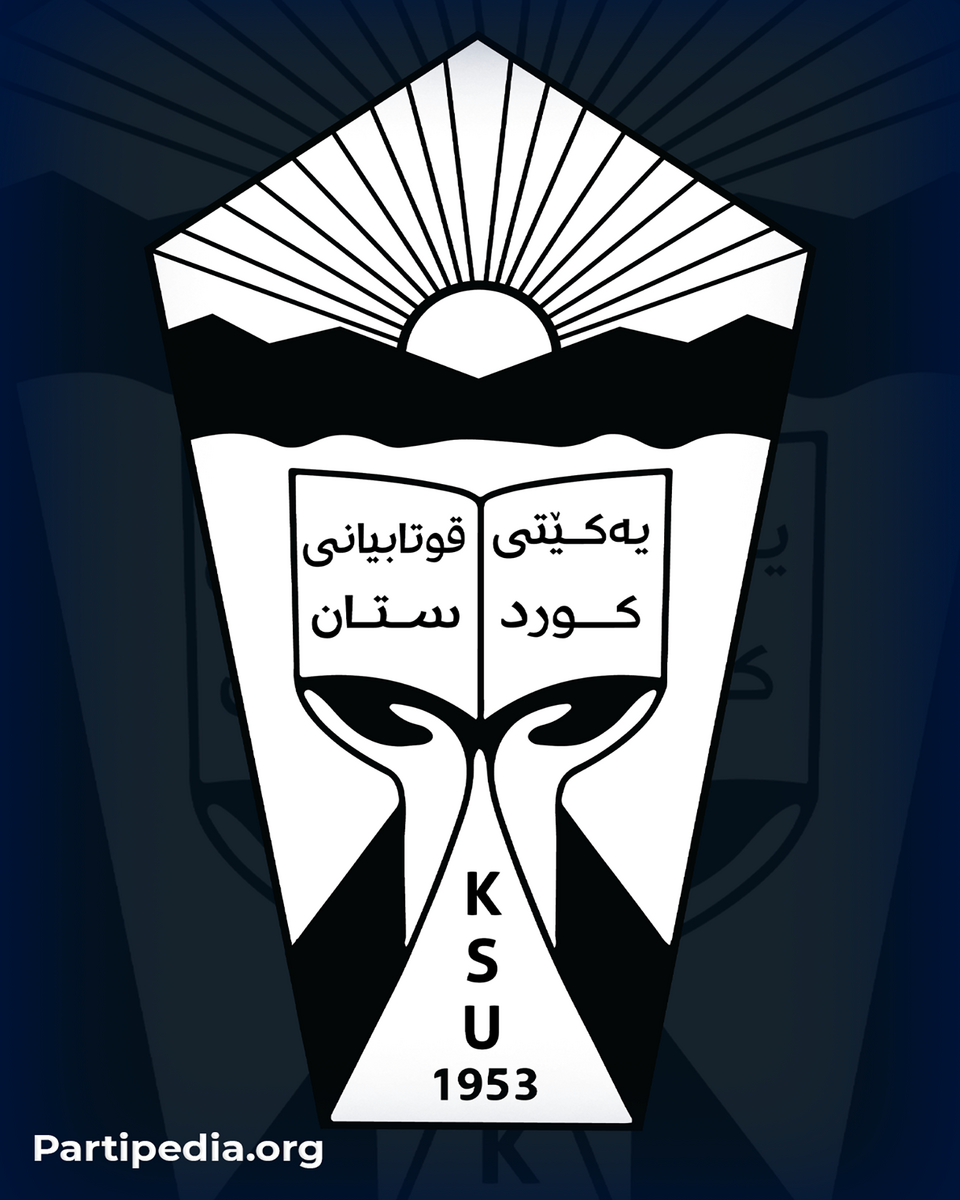Situation Before the Congress:
Following the fifth congress of the Kurdistan Students Union (KSU), the organization faced an emergency situation. The main organizing committee, initially based in Baghdad, saw its activities extend to other regions, which weakened the position of the secretariat. To address this issue, the central bureau of the Kurdistan Democratic Party decided to establish a central organization office on both sides. Headquartered in Baghdad, this office was tasked with overseeing the organization's operations until the sixth congress of the Kurdistan Students Union1.
On March 11, 1970, the March 11 Agreement was signed between the revolutionary leadership and the Iraqi government. This agreement ushered in a new phase for the party and its mass organizations, enhancing the freedom for political and organizational activities. The agreement led to the dissolution of previous factions that had dominated the party organizations. The faction of the Political Bureau known as the Jalalis was reintegrated into the party, marking the beginning of a new era of open and cooperative work.
The Kurdistan Students Union took advantage of this situation to open branches in Baghdad and across all Kurdish cities. As a result, Kurdish students were able to openly join the organization's various groups.2
The new circumstances prompted the Kurdistan Students Union to convene a new congress. With the party having recently held its eighth congress, the central organization office of the Kurdistan Students Union decided it was time to hold its sixth congress to reorganize and strengthen its ranks.3
The congress was initially planned to take place in Sulaimani but was later relocated to Nawprdan village, where the eighth congress of the Kurdistan Democratic Party (KDP) had been held and where the necessary arrangements for the congress were already in place. Delegates were notified of this change and the details of the congress through the newspaper *Al-Takhi*4.
Conducting the Congress:
After completing the preparations, the sixth congress of the Kurdistan Students Union took place from July 15 to 18, 1970, in the liberated areas of the September Revolution, specifically in the village of Nawprdan in Erbil province. The congress was held under the slogan "Peace - Science - Brotherhood." The event commenced with a speech by President Mustafa Barzani, which was read by Brigadier General Aziz Akreyi. Additionally, Dr. Mahmoud Osman read the speech from the Political Bureau of the Kurdistan Democratic Party.
At the beginning of the congress, the executive committee was elected as follows:
1- Adel Murad, also known as Adel Fayli
2- Anwar Abdullah, also known as Anwar Rais
3- Ranj Nuri Shaweis
4- Farhad Awni
5- Abdulqadir MohammedAmin
6- Arif Tayfoor
7- Nuri Akreyi
8- Jarjis Hassan
9- Sabah Akreyi
10- Saadi Khalil
11- Adel Leylani
12- Wazira Pirdawd Qadir
13- Mohammed Haji
14- Yousef Mawloud Qasab
15- Osman Salih Osman, known as Osman Khoshnaw
16- Jalal Khoshnaw
17- Akram Ahmad
18- Ezadin Rashid Haji Badri, known as Sherko Sindhi
19- Haji Mohammed Kret
20- Jawad Mohammed, known as Jawad Sherwani
21- Abdullah Mohammed, known as Abdullah Bawani.
After discussing the congress issues and evaluating the revised draft program and internal rules, the executive committee met on the 18th of the month. During this meeting, the new secretariat was elected by the congress members as follows:
1- Anwar Abdullah, President
2- Jarjis Hassan Abdullah, Vice President
3- Farhad Auni - Secretary
4- Jalal Salim Khoshnaw - Member of the Secretariat
5- Adel Fazel Leylani - Member of the Secretariat
6- Ranj Nuri Shaweis - Member of the Secretariat
7- Yousef Mawlod Qasab - Member of the Secretariat7.
President Mustafa Barzani was unanimously appointed as the Honorary President of the Students Union8.
The congress issued several important decisions and recommendations, including:
- The development of Kurdish culture.
- The establishment of educational courses for Peshmerga.
- Support for the March 11 Agreement.
- Identification of students to be sent abroad.
- Support for the opening of universities and colleges in Kurdistan.
- The creation of seven branches of the Kurdistan Students Union in designated areas: Baghdad, Erbil, Mosul, Duhok, Sulaimani, Kirkuk, and Diyala9.
The sixth congress was not without its issues. When Anwar Abdullah was elected president, several executive committee members participated in the first meeting on the grounds that Abdullah had received an unusually high number of votes and the number of committee members had been increased. This led to a significant protest, with 15 out of 21 executive committee members refusing to attend the initial meeting.
According to the program and rules of procedure, if a majority of the executive committee members are dissatisfied with the work of the president or his deputy, a re-election can be held. Consequently, in a February 1971 meeting, the executive committee, excluding Anwar Abdullah and Qadir Hamademin, organized new elections, resulting in Adel Murad Fayli being elected as the new president of the Kurdistan Students Union. Shortly thereafter, Jarjis Hassan and Adel Fazel Leylani went abroad to continue their studies. As the 7th Congress, scheduled for 1972, approached, no new vice president had been appointed10.
Following the congress and in accordance with Article 5 of the March 11 Agreement, which stipulated that Kurdish mass organizations would become members of central organizations, the Kurdistan Students Union joined the Iraqi National Students Union11. Additionally, three members of the Secretariat Bureau were integrated into the Executive Bureau of the mentioned Union.
Source:
1.kdp Encyclopedia Archive.





